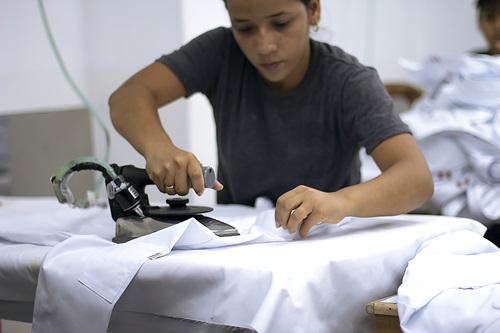
Photo © Daseaford | Dreamstime.com
Memorial Day, the great dividing line between spring and summer, is behind us. Now, as members of the sports industry seek to fill in the gaps in their labor force, they are looking to two visa programs which allow for temporary employment of foreign nationals in the U.S.
This summer, however, fewer of those vias (and thus, those workers) may be available, notes Ogletree Deakins, which specializes in immigration issues, since the cap on the number of H-2B visas (which allow employers to have foreign workers brought to the U.S. to fill temporary, non-agricultural jobs) has been met for the second half of fiscal year 2025. Employers seeking to employ H-2B workers to meet their labor demands will need to hire cap-exempt workers or H-2B workers who meet the criteria under the supplemental allocation.
An H-2B worker can be exempt from the cap in several situations; these include workers who are already in the U.S. in H-2B status and are extending their stay, those who are here but who are changing employers, or those who are in the U.S. but are changing the terms of their employment.
Among the sports venues that rely heavily on H-2B to fill vacancies are golf courses and equestrian facilities, including rodeo grounds, race tracks and riding centers – although many other facilities use these workers as well, as does the hospitality industry as a whole.

In order to use H-2B, employers must establish that there are not enough U.S. workers who are able, willing and qualified to do the temporary work and that wages will not be adversely affected by hiring a foreign worker.
So far, that has not been a problem, according to venue operators, who say that much manual labor is involved for many of the jobs in question, and U.S. residents – including high school and college students – don’t want to do perform those tasks.
Horse racing officials, for example, told the Courier-Journal in Louisville that it’s difficult to find U.S. workers who want to perform the difficult and dirty work of caring for horses.
“People show up on Day One and they never come back. They don’t want to shovel horse manure. They don’t want to do the hard, heavy labor. ... Maybe they last a week, at most,” L.J. D’Arrigo , an immigration attorney who represents trainer Todd Pletcher, told the Courier-Journal.
The hospitality industry also leans heavily on visa workers for jobs in housekeeping, maintenance and other areas. Costar quotes Stacy Hiller, senior director of talent acquisition and engagement at Xanterra Travel Collection, which operates a number of national parks lodges, as noting her company is “very reliant” on seasonal workers, who make up a significant part of the lodges’ workforce. However, H-2B visas are only leveraged at The Grand Hotel at the Grand Canyon while Xanterra prefers to use other visa programs elsewhere they say are more reliable for staffing.
Resort areas, highly popular for summer sports tourism, as well as for leisure travel, also rely heavily on visa workers who fill positions in shops and restaurants as well as amusement parks. Visa workers are also sought after by amusement companies that staff traveling fairs, such as county and state fairs throughout the U.S.
Another type of visa program, the J-1, is for individuals approved to participate in work-and study-based exchange visitor programs. But proposed cuts to the program have many in the industry worried as well.
At the New Jersey Business and Industry Association, for example, Denise Beckson, an NJBIA board member and the VP & Chief Administrative and External Affairs Officer at Morey’s Piers & Beachfront Water Parks in Wildwood, said the cuts, if approved by Congress, would “jeopardize the existence of the J-1 program that is vital to our New Jersey business community.”
Costar notes, “Outside observers agree that there are potential issues with the visas. The hospitality industry has been regularly lobbying for a clearer immigration policy.”
The pathway to citizenship, and even visa acquisition, said Nicolas Graf, associate dean of the Tisch Center of Hospitality at New York University, is unclear, he said, and those with H-2B visas are worried about how to behave.

Already, the shortfalls are being felt. Hotels that need H-2B workers typically face staffing shortages that result in putting rooms out of service at some point in their peak season, said Jay Landfair, a principal with consultancy Omnia Hospitality.
As early as late winter this year, there is one hotel near the Grand Canyon that had 35% of its room inventory out of service — rooms it could have been selling every night during spring break season in Arizona.
According to CBS Austin, the U.S. could be doing more to fill its vacancies from within but it’s not: “Recruitment of domestic labor remains a significant problem … Restaurants in summer tourist destinations post jobs for dishwashers requiring prior experience. Jobs are rarely posted in languages other than English.”
“From Maryland crabbers to Colorado ski resorts, American businesses depend on a regular stream of helpers from abroad,” notes Reason.com. “Yet the businesses that want to do things "the right way" often realize that means going without workers, forgoing growth opportunities, and failing to reach their potential.”
SDM will continue to follow this developing issue, which stands to impact sports venues, hotels and other attractions this summer.

